LOVE AMONG THE VILLAGE PEOPLE
“I’m sure if you asked many people, thousands of them would say ‘oh, yes, I’m intimately involved with historical re-enactors’ - but no, I have no ties to that world,” is how writer Peter Tolan answers a question about the genesis of ‘Brave New World’, a workplace comedy that was to be set in the fictional Pilgrim Village, a historical recreation of a 1637 pilgrim community staffed by all manner of eccentrics.
But for Tolan, one of the leading creative forces behind comedies like ‘The Larry Sanders Show’ and ‘Analyze This’ as well as the hit FX comedy-drama ‘Rescue Me’ (which he co-created with Denis Leary), historical re-enactors and the strange world they inhabit was an area ripe for exploration.
“I grew up in Massachusetts, and a little south of us was Plymouth and there’s this place there called Plimoth Plantation. And that’s exactly what ‘Brave New World’ was - a pilgrim community, showing how the pilgrims lived. The people that work there can’t break character. And when you were a kid - at some point in school, they’d take you there and it was cold and basically an awful experience. Somewhere in the back of my brain, I must have tucked it away, thinking it seemed like a very strange job and a very strange place to work.”
For Tolan, the idea was less about history and more about the people.
“You have people who work there and say ‘Oh, this is just a job and it’s awful’ and then you’d have the ones who had a deep connection to it and couldn’t consider doing any other job - they’d probably even pay to be there,” he said.
“And then you have the anachronisms - these people are dressed as pilgrims but talking in modern speech. As I remember it, it was an easy sell.”
Making history at Pilgrim Village
Tolan’s lead, Matt (Nicholas Braun, currently best known as Cousin Greg in HBO’s ‘Succession’) is definitely not passionate about his job - or even that good at it. When we first see him, he’s busted talking on his cell phone by a group of tourists, leading to workplace disciplinary action, Pilgrim Village style - being hauled into the stocks. His boss, Dick, is sympathetic - but also a unique combination of stern, clueless and overly dedicated (‘This job is too good to lose,’ he reminds Matt. ‘It pays well, the health benefits are great and there’s unlimited cranberry juice in the employees’ lounge! That might not seem like a plus, but I’m 18 straight months without a urinary tract infection,’ he enthuses). For Tolan, there was only one real contender for the role of Dick - Ed Begley Jr.
“Ed and I had worked together a couple of time before,” he said.
“He was in this show I wrote years and years ago that had a terrible title - I called it ‘The Web’, because that’s what they used to call television networks, but it went on the air called ‘Wednesday 9.30 (8.30 Central)’. That was the title. It was a dark, caustic show about a television network and Ed played the hapless network president. He was so funny - I adored watching him, and so now every time I do something, I’m like ‘What can I do with Ed here?’ He’s just that good.”
Matt not only stinks at his job, but his love life stinks too - he’s been harbouring a crush on co-worker Maura (Anna Popplewell) for the better part of two years. A poorly timed attempt to express his feelings to her sees Matt lose control of the village ox - Masterly - who proceeds to run rampant in the tourist attraction’s
Car park.
“Sometimes you write things like this and it’s wishful writing where you think ‘someone smarter than I will have to figure this out’,” Tolan said.
“But pretty early on I learned the lesson - that which you write, you must produce. So I’d written ‘There’s an ox humping a prius’ - that’s like five words, right? Do you know what goes into producing those five words? It’s pretty involved! You’ve got to teach that ox to hump the Prius - there’s a guy with a stick, and if the ox doesn’t hump the Prius, he gets hit with a stick. We took the hood off the Prius, and they did some other things to make it easier for the ox to get up there. And that’s when everyone looks at me on the set and goes ‘You thought of this, you perverted bastard!’”
Matt’s rival for Maura’s affections (at least from his point of view - Maura doesn’t seem romantically interested in either of them) is Richard (Will Greenberg), a guy who can’t go five minutes without reminding everyone that he’s a direct descendant of the Mayflower pilgrims. With stoner colleague Damon (Robby Benson) offering romantic advice from the sidelines, Matt hatches a plan to win Maura’s affections by replacing Richard as Maura’s ‘husband’ in the daily cemetery scene - where a grieving couple bury their infant son. And while Matt lands the role, Richard crashes the scene - and the faux burial soon turns ugly as the two grown men (in character as pilgrims) fight over the paternity of their fake, dead baby which ends with Richard accidentally tearing the baby in two (“Two elderly ladies fainted, others vomited and we’ll have to hire a grief counsellor for that one kindergarten class,” an exasperated Dick laments, declaring the performance “a hate crime against the performing arts”). The episode ends with Maura slowly warming to Matt, the revelation that she already has a boyfriend, and Damon giving Matt a rousing, highly stoned stream of consciousness ‘don’t give up speech’. For Tolan, making ‘Brave New World’ was an incredibly positive experience.
Making history at Pilgrim Village
“Some years ago, I did a pilot and, in the course of shooting it, I was sitting at the monitors and I thought to myself ‘What’s the second episode?’,” he said.
“There was a flaw baked into it, and I was too busy solving this problem or that to notice. And when I finally got the chance to sit down, I went ‘Oh boy, this can’t be a series’. And sometimes you do a show and there’s just one person in the cast where you think ‘if I could just arrange a car accident for that one person, I’d have the perfect cast. This wasn’t like that - I felt like I could do this show for seasons and seasons, and the people involved were all very funny. ‘Brave New World’ was also the biggest set I’d worked on - it was all outdoors, and our set designer used to work for Disney, he’d had experience in theme parks. So things looked way bigger than they were - you’d just walk through this set and it was unbelievable. And the extras casting was incredible, I’d walk around the set while we were shooting and look at some of these extras - they looked like they’d just come over on a boat from England in the 1700s. And it looked like there had been a level of inbreeding in there, too.”
Tolan had been hopeful ‘Brave New World’ would get picked up, but - despite some positive responses - NBC ended up passing.
“I spoke to someone at NBC, who said ‘We have some of those shows right now’,” he said.
“And by that, they meant a single-camera show that’s smart, that’s funny and that not enough people watch. They had those shows, the ones that don’t draw in the numbers, but have some level of cachet - and they didn’t need another one.”
Meet the.. err... Indians? Indian MIT student Girish (Asif Ali) and Native American John (Tyler Blackburn)
While ‘Brave New World’ was an out and out comedy, ‘Guess Who Died’ had a much more sombre undercurrent to it. Yes, it was still a comedy. But it was equally a drama. A passion project for writing legend Norman Lear, ‘Guess Who Died’ evolved when Lear and Tolan connected through their respective deals with Sony.
“Sometimes, a studio will approach you and say ‘We have this young writer and they need someone to shepherd them through’,” he said.
“In this case it was ‘Well, we have this really old writer...’ and if you’re me, and someone offers you the chance to work with Norman Lear, you just do it. If they told me to clean his pool, I’d do it. Norman had been trying to get it (‘Guess Who Died’) made for eight years. His script had all the bones for it, but there were digressions that took it to different places that maybe didn’t feel as real as it needed to be. It was fascinating working with Norman - I’d just turned 59 and within two months, he turned 95, so we were the same digits, but flipped. In some ways it was like working with your grandfather. I’d start rewriting, and I’d ask him what he didn’t want me to change, and he’d say ‘Don’t change this or this’. So I’d get to work and I’d change one, but not the other, and hope he’d forget. And there’d be times where he would forget things, but that didn’t mean he was in any way diminished. To put it in perspective, the day we sold the show, we’d gone all over LA - we’d been from here to there, just all over the place. And we had a five o’clock meeting at NBC in Burbank, which is the worst - nobody wants to be in Burbank at 5 o’clock. We pitch it, and they buy it in the room, which is fantastic. I have to go and do somebody’s podcast, which I’d committed to do earlier. And as we get up to leave, Norman asks how long it’ll take to get to Pasadena. He said ‘They’re showing one of my old movies and I’m going to speak afterwards.’ So I go, do the podcast which took a couple of hours and start driving home. I’m in a bad mood, I haven’t eaten, I’m really tired and feeling sorry for myself. Then I realise Norman’s still out at Pasadena - his day’s been just as long as mine, maybe longer, and he’a still out there. At 95, he’s indefatigable - there’s just no stopping him.”
Welcome to what’s left of the rest of your life
Despite their age difference, there weren’t too many differences in their writing styles.
“He would surprise me sometimes,” Tolan said.
“If you look at Norman’s work in the 70s, he’s essentially doing stage work on television. Something like ‘All in the Family’ is that one set, the story’s shot sequentially, it’s very naturalistic - he’s very interested in the theatre experience. At one point, when I was rewriting ‘Guess Who Died’, I wrote in a mention of a man that all the women in the complex were fucking. The idea was we’d cut to these quick pops of these three or four of these women, each one progressively older and more faintly looking, going on about him - ‘Oh, he’s a stallion, he cleans and does the dishes when he leaves’... that kind of stuff. Norman read it and said ‘What is this - can you do this?’ And it was something everyone does - because you only have 20 minutes to tell the story and these quick pops help move the story along. That was a surprise.”
Tolan and Lear poolside at the Las Esperanzado Retirement Village
The story, both in Lear’s original and Tolan’s rewrite, centres on Murray Ziskin - a sweet, always positive 77-year-old retired music producer, living in the Las Esperanzado Retirement Village with his ailing, catatonic wife Barbara and her sister, Patricia. Patricia - a retired executive - is Murray’s polar opposite, personality-wise. She’s dour (“I can’t sleep without Xanax, can’t get out of bed without Celebrex and can’t eat without Prilosec. But other than that, I’m aces,” she moans over morning coffee) and irritable. But the two of them get along like a house on fire. If the presence of a catatonic wife wasn’t clear, the choices made by Lear and Tolan quickly demonstrate they were interested in more than just laughs.
“There were two big choices that felt big to me,” he said.
“The first was Norman’s - his choice was that the main character’s wife dies in the pilot. My choice was to then have that character fairly immediately turn around and inform his daughter who he’d decided he wanted to spend the rest of his life with, namely his dead wife’s sister. Those are big choices for a pilot. Normally when you mention death, that kills most shows - if you say someone dies, invariably the studio will come to you and say ‘Couldn’t they, like, disappear or something instead?’ And with the second choice, there’s always the risk that people will view it as a callous decision - I felt we explained it very nicely, but you have a man saying goodbye to his wife of so many years and then he has to tell his grieving daughter about this difficult choice. They’re not, like, haha scenes.”
To help balance out the drama, Tolan added a new character to the mix - Mort, a perpetually angry village resident
“I put that character in because I knew what the main character’s world view, I wanted to add a character who had the exact opposite view, who felt that everything sucks, it sucks being old, we’re all going to die and I hate everybody.”
Researching what life was like in retirement villages helped provide the duo with some invaluable information when it came to pitching the show.
“In our research, we found this study looking at centralised instances of STDs - and it turned out that the leading area in the world was a retirement village in Florida,” Tolan said.
“So yes, they were fucking - and that’s how we ended up pitching the show. We said it was like high school with more prostate problems and less hair. And that’s what it really is, these communities become like high school - there are cliques, there are activities, there are dances... it’s all high school.”
Casting, Tolan said, was a sobering experience.
“We were seeing actors who you haven’t seen in a while - well-known people, and some of them hadn’t worked in a while,” he said.
“It was heartbreaking. One actor who was fairly famous came in to see us, he sat with Norman and leaned right into him and said ‘I have to tell you, unless I am this close to you, I cannot see you.’ And it was really sad - because we needed him to see the people he’d be acting with, and reacting to. One other person who came in was William Shatner. He’s 86 or some crazy age, and he has the most sonorous voice - it sounds like it comes from someplace underneath him, like out of the earth or something. I’d never met him before and I was just like ‘Please God, please give me a William Shatner moment’ - and he did not disappoint. He comes into the room and says to Norman, ‘I’ve read your script - what’s it about?’ And I can see Norman thinking ‘Are you fucking kidding me?’, and he says ‘Well, it’s about old people and blah blah blah...’ Shatner says ‘Well you might have to do some work on it, because I’m not getting that on the page.’ He’s in there and he’s pissing on the script! Then, later on, he says ‘I’m not sure I’m really interested in doing a half hour, anyway.’ We were like ‘Well why the fuck did you even come in here?’ But it was perfect, I wouldn’t have it any other way. It was the perfect Shatner thing.”
Given the comparatively rigorous demands of the shoot on the older cast, Tolan and Lear used their meetings with actors to subtly test their physical stamina.
“These were not auditions, these actors were high enough up that they didn’t have to audition,” Tolan said.
“We did some things - little things like make them sit on the other side of the table, so they had to walk further and we could see how they could move. And we’d look at some of these very famous men and think ‘He would never be able to get through.’ Now, the person who ended up getting the role of Murray was Hector Elizondo. I mean, obviously you’re going to hire him - he’s a great actor, he’s got a great life spirit and he’s perfect for that character. So we meet, he’s great, I love him, Norman loves him. He gets up to leave and I hold the door open for him. As he starts to move, he takes his sunglasses out to put them on - but he drops them. So I make a choice - I’m going to let him pick them up, to see if he can do it. He just scoops right down and picks them up, and I go ‘He’s in! He can pick glasses up off the floor! He’s in!’ Even better, when we were shooting, I’d written this scene based on something Norman had told me. When we were writing, I’d asked him to tell me things about him at 95 that we could use. He said ‘Every day, I get up and take a shower. When I get out of the shower, I look in the mirror, I look at what’s happened to me after 95 years on this planet. Some people would despair. But I just laugh, and I do a little dance. So I used that - and there’s a scene where Murray gets out of the shower, looks at what he’s become, and does a little dance. Now, it comes time to shoot it. Hector stands in front of the mirror, and he’s in better shape than anyone on the crew. He’s 80 years old and there are 25 year olds on set looking at him saying ‘Man, I gotta lose some weight!’ He could even do that thing where he made his tits go up and down. So we still shot it, and it was really funny... but it was not what that scene was supposed to be.”
For Mort, the anti-Murray, Tolan and Lear turned to a man who’d been an integral part of pop culture for decades, Christopher Lloyd.
Loving (and hating) what’s left of life, Murray (Hector Elizondo) & Mort (Christopher Lloyd)
“Every line he did, he’d kill - he’d just kill,” Tolan said.
“He wasn’t necessarily trying to kill, but there’s such a built in relationship the audience has with him - there’s Reverend Jim from ‘Taxi’, there’s Doc Brown and, at some point, they just become bigger than themselves. For me, that was a blessing - the worst thing that could’ve happened would’ve been a response like ‘Christopher Lloyd was good, I just wish they’d given him better material.’”
Ultimately, the balance of light and shade proved too much for the network.
“Funnily enough, the same person who passed on ‘Brave New World’ ended up being the one who passed on ‘Guess Who Died’,” Tolan said.
“We were all like ‘How do you pass on Norman Lear’s passion project for God’s sake?’ He said ‘it just wasn’t funny enough’. To me, it was funny - but it also had some deep shit in there, too. If we made a mistake - and it wasn’t a mistake the actors made - we could have told them (the cast) not to lean quite so heavily into the drama. While we didn’t play all the way to devastation, we certainly played more towards the tears of it. And even though we had Christopher in there as comic relief, I think the balance tipped a little bit.”
With more time, and more episodes, Tolan believes they could’ve achieved the right balance.
“When Denis (Leary) and I did ‘Rescue Me’ (a comedy/drama centring on a firefighter suffering from severe PTSD post-9/11), we figured out that balance early on,” he said.
“We did an episode where someone in the firehouse died - not one of the regulars, but another firefighter. In the same episode, the characters also had a cock measuring contest. And we said ‘OK, if somebody dies, you’d better be measuring cocks’. It brings that scale back, so as dark as it gets, it had better get that light too. With ‘Guess Who Died’ in an alternate universe where it got picked up, but they said ‘It seems a little dark’ or ‘It doesn’t seem funny enough’ - which is what they said - I would have learned that lesson from the pilot and told everybody not to play things as real. Because in the pilot there was this one-two punch where you’ve got this lovely scene of a guy saying goodbye to his wife and then, in the next scene, his daughter’s being told this terrible news and is having to deal with it emotionally. And then it’s ‘Christopher’s funny, goodnight everybody’. I think hopefully I would have learned from that and been on guard - not to make the show less real, but to remember the balance.”
After spending a fair bit of his post-‘Rescue Me’ time in network television, Tolan’s now returned to the world of cable.
“I’m back at FX, where I did ‘Rescue Me’ and I’m working with some of the same people that I worked with back then,” he said.
“They’re very open and say things like ‘Well, what do you want to do?’ - as opposed to ‘Here’s a young writer who needs help,’ not that that’s a bad thing. But their focus is ‘What do you have to say?’ So I get to say ‘Here are the things that interest me.’ One of those things is about the failure of institutions - it could be any institution because they’re all failing, let’s face it. But this is about a Catholic priest in a small town, much like the one where I grew up. The other one; when I went to FX they asked me if there was anything I was interested in that I hadn’t written. And I said ‘Well, I’m trying to figure out how to write this thing about coming out in middle age’ - because I came out about ten years ago. I was about 50 years old, married with children. Soon after, my friends were telling me I should write about it. My initial response was ‘No fucking way - this was such a miserable experience, how could I make that entertaining?’ And the people at FX said ‘We’d be interested in seeing that.’ That was all I needed to say, and I immediately went off and wrote it - I’m now on the fourth or fifth draft, it’s very funny. It’s entirely different now, it’s not necessarily my story, but it’s that story overlaid into a totally different world. So that’s how I keep going, I keep writing about stuff that I care about. My scope of interest has narrowed to a degree, and if you said to me ‘Here’s the show, it’s already sold and it’s on one of the networks’, I’d pass. I don’t see any point in working for the major broadcast networks, it would just be a huge step back. They certainly wouldn’t get what they want and neither would I. So, you know, you just start to say ‘I’m not going to do that any more’ and it narrows down.”
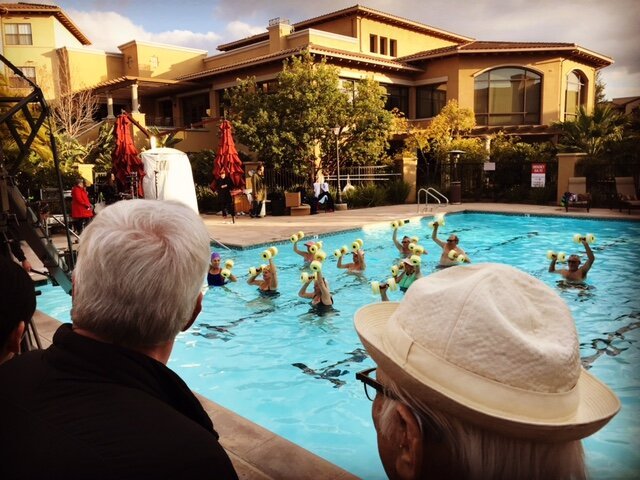
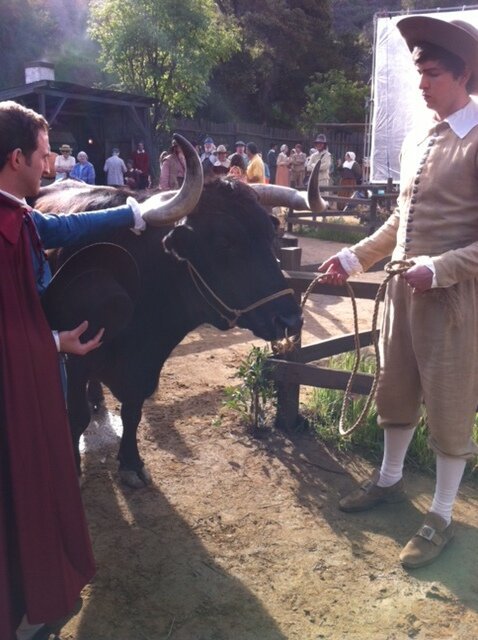
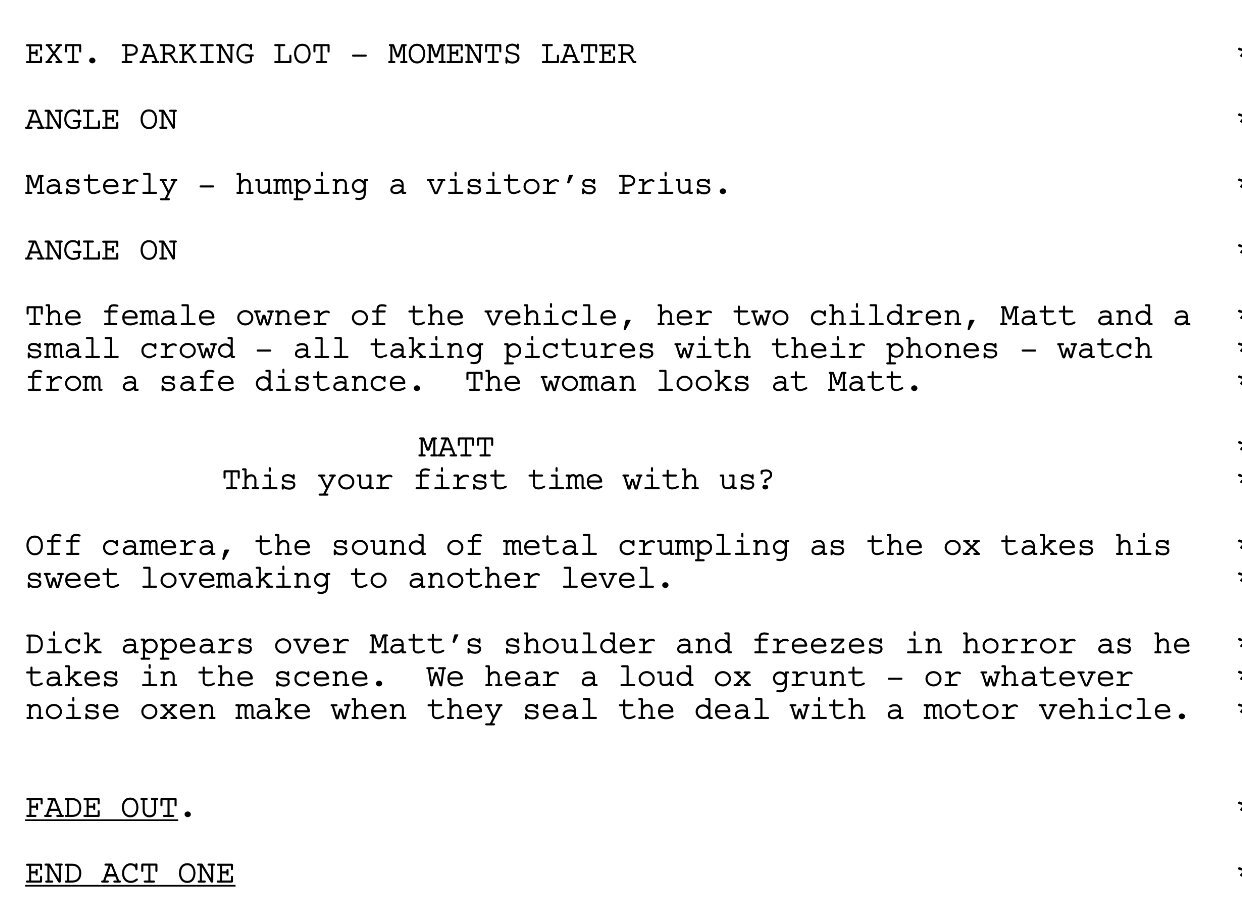
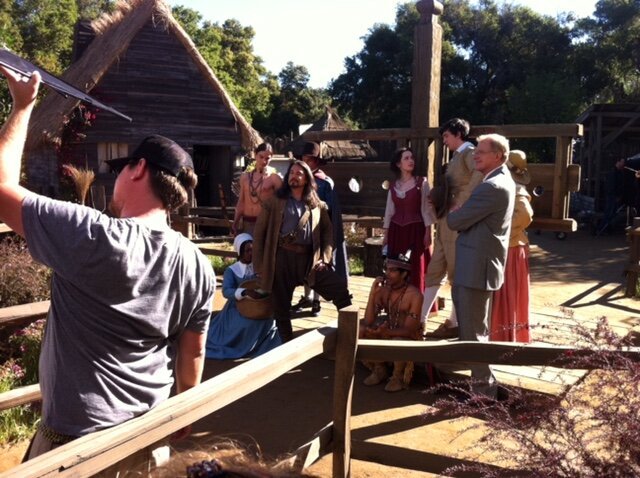
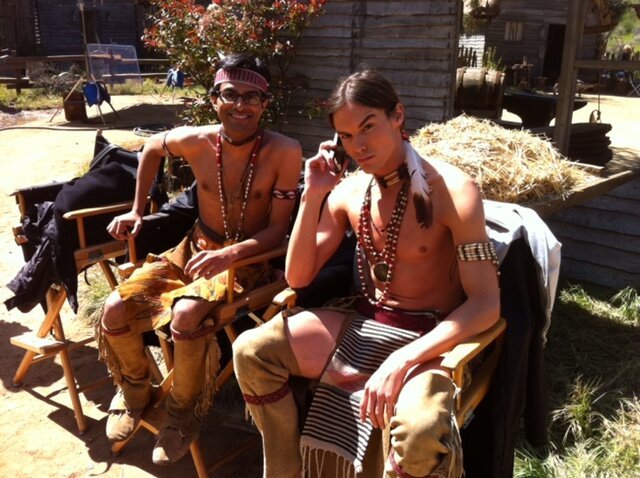
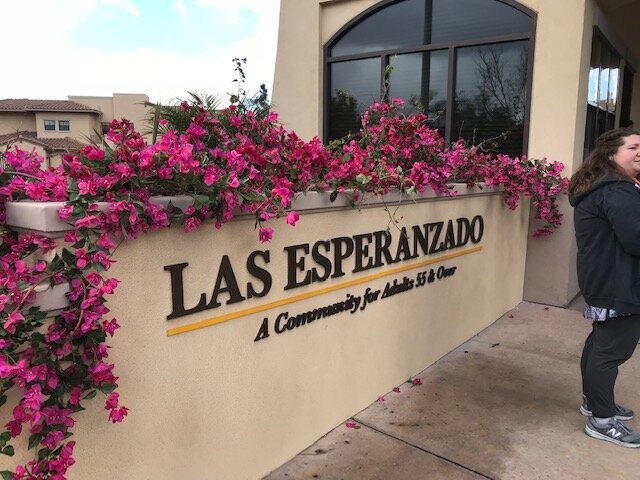

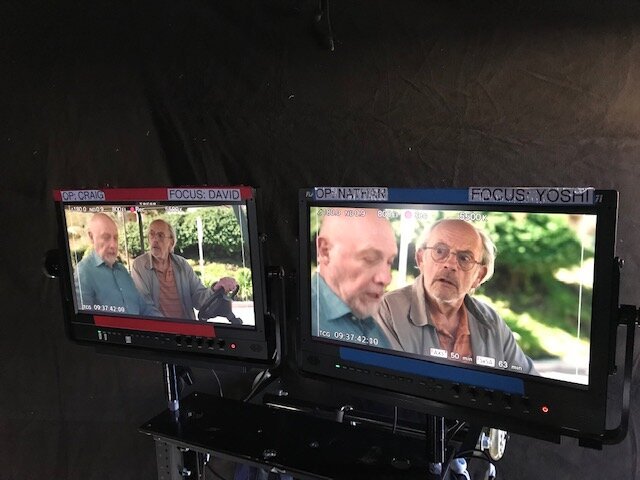
Anotherfilmnerd's earliest cinematic memory was seeing Don Johnson throw up all over a suspect in John Frankenheimer's 'Dead Bang'. Ever since, he's devoted his life to searching out cinema that's weird, wonderful and features vomit in the most unlikely of places.